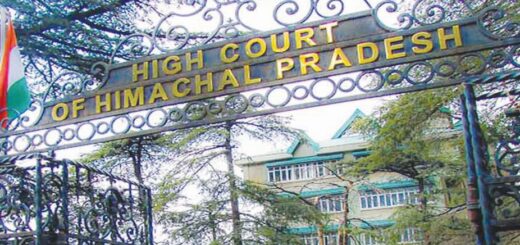The Supreme Court states that letting the government take private property through adverse possession weakens citizens’ constitutional rights and damages public trust.

The Supreme Court noted that allowing the State to take private property through adverse possession threatens citizens’ Constitutional Rights and damages public trust in the Government. This statement was made in a Civil Appeal against a decision by the Punjab and Haryana High Court, which had allowed a regular second appeal, overturned the First Appellate Court’s ruling, and reinstated the Trial Court’s decree. The two-Judge Bench, consisting of Justice Vikram Nath and Justice Prasanna B. Varale, stated, “Allowing the State to take private property through adverse possession would threaten the constitutional rights of citizens and damage public trust in the government. Thus, the appellants’ claim of adverse possession is not valid under the law.”
The Bench emphasized that the State cannot claim adverse possession over its citizens’ property. Additional Solicitor General Vikramjeet Banerjee represented the Appellants, while Senior Advocate Santosh Paul represented the Respondents. The case involved a land dispute where the original Plaintiffs filed a Suit for possession in the Court of Sub-Judge 1st Class. They asserted ownership based on revenue records and claimed that the Defendants had illegally occupied the land about 3.5 years before filing the Suit. They argued that the Defendants did not vacate the land despite multiple requests and a legal notice.
The Trial Court ruled in favor of the Plaintiffs, but the Defendants were unhappy and appealed to the District Judge. The First Appellate Court accepted the appeal and dismissed the Plaintiffs’ case. The Plaintiffs then went to the High Court, which allowed their appeal. As a result, the Defendants, now the Appellants, took the matter to the Supreme Court. The Supreme Court noted that the Plaintiffs used jamabandi records to prove their ownership. The 1969-70 jamabandi (Exhibit P1) listed Shri Amin Lal as the owner of a half share. These revenue records are official documents that are generally considered accurate under Section 35 of the Indian Evidence Act, 1872. While these records do not automatically grant ownership, they can support a claim of ownership when backed by other evidence.
The Court stated that the Appellants’ possession, shown by the Misal Hakiyat from 1879-80, was allowed and conditional, describing it as “Bikhar Bahali Kaza,” which means it was only valid as long as the orchard existed. This type of possession cannot support a claim of adverse possession. The Court also pointed out that the actions taken by the Appellants, like placing bitumen drums, building temporary structures, and putting up a boundary wall in 1980, do not qualify as adverse possession. Adverse possession requires continuous, open, peaceful, and hostile possession against the true owner for a specific time. In this case, the Appellants’ possession did not show hostility or the necessary duration. Therefore, the Court concluded that the High Court acted correctly under Section 100 of the Code of Civil Procedure (CPC) and properly overturned the First Appellate Court’s decision. Thus, the Supreme Court dismissed the case.
Cause Title: The State of Haryana & Anr. v. Amin Lal (Since Deceased) Through His LRs & Ors. (Neutral Citation: 2024 INSC 875)








